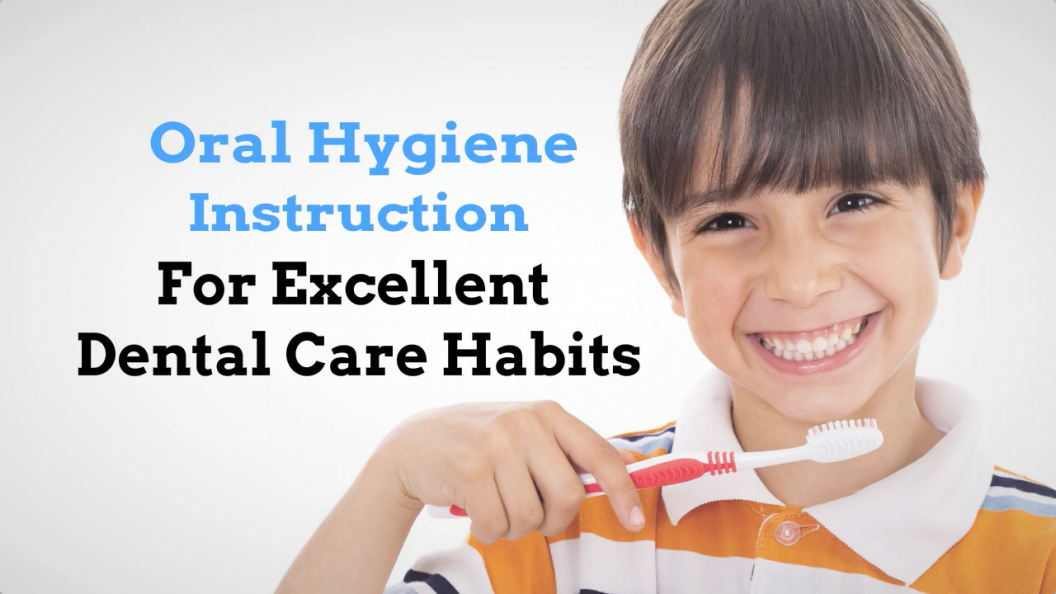Oral Hygiene Instruction: Boosts Healthy Smiles

Maintaining good oral hygiene is crucial for a healthy smile and overall well-being. It not only helps prevent tooth decay and gum disease but also boosts confidence and self-esteem. In this comprehensive guide, we will delve into the world of oral hygiene, exploring the best practices, latest techniques, and expert tips to help you achieve a healthy, radiant smile.
Understanding the Importance of Oral Hygiene
Oral hygiene is the practice of keeping your teeth, gums, and mouth clean and healthy. It involves regular brushing, flossing, and rinsing with mouthwash to remove plaque, bacteria, and food particles that can cause cavities, bad breath, and gum inflammation. A good oral hygiene routine can help prevent a range of problems, from mild issues like tooth sensitivity to more severe conditions like periodontitis, which can lead to tooth loss and even systemic diseases like diabetes and heart disease.
The Basics of Oral Hygiene: Brushing, Flossing, and Rinsing
Brushing: Brushing your teeth at least twice a day, in the morning and before bed, is essential for removing plaque and bacteria. Use a fluoride toothpaste and a soft-bristled toothbrush, paying special attention to the areas where your teeth and gums meet. Don’t forget the back sides of your molars and the surfaces of your tongue and the roof of your mouth.
Flossing: Flossing once a day helps remove food particles and plaque from between your teeth and under your gumline, where a toothbrush can’t reach. Take a long piece of floss and wrap it around your middle fingers, leaving about an inch or two in between. Gently slide the floss between your teeth, curving it around the base of each tooth in a “C” shape, and then slide it up and down against the tooth.
Rinsing: Using a mouthwash can help kill bacteria, reduce plaque, and prevent gum disease. Swish the mouthwash around your mouth for 30 seconds to 1 minute before spitting it out. However, it’s important to note that mouthwash should not replace brushing and flossing but rather complement them.
Advanced Techniques for Enhanced Oral Hygiene
Interdental Brushes: For those with larger spaces between their teeth, interdental brushes can be more effective than floss in removing plaque and debris. They come in various sizes, so it’s crucial to select the right size for your teeth to avoid causing damage to your gums.
Waterpik: A water flosser, or oral irrigator, can be highly effective in removing plaque and food particles, especially for those with orthodontic appliances or closely spaced teeth. It works by shooting a stream of water between your teeth and below your gumline.
Tongue Scraping: The surface of your tongue can harbor bacteria, leading to bad breath and affecting the overall taste. Using a tongue scraper can help remove these bacteria and debris, improving your oral health and freshening your breath.
Dietary Considerations for Oral Health
What you eat and drink plays a significant role in your oral health. Sugary and acidic foods and beverages can contribute to tooth decay and erosion of tooth enamel. Here are some dietary tips:
Limit Sugary Foods and Drinks: Try to limit your consumption of sugary snacks and drinks, as they are primary sources of energy for the bacteria that cause cavities.
Choose Acid-Reduction Diets: Reduce your intake of acidic foods and drinks like citrus fruits, soda, and sports drinks, which can erode tooth enamel.
Increase Calcium Intake: Calcium is crucial for the health of your teeth and bones. Include calcium-rich foods like milk, cheese, and leafy greens in your diet.
Stay Hydrated: Drinking plenty of water helps rinse your mouth, reducing the concentration of sugars and acids that can harm your teeth.
Professional Care: The Role of Dentists
While a good oral hygiene routine at home is crucial, professional dental care is equally important. Regular visits to your dentist can help in the early detection and treatment of oral health issues. Here’s what you can expect from professional dental care:
Cleanings: Professional cleanings, also known as prophylaxis, remove plaque and tartar that can build up on your teeth, both above and below the gumline, reducing the risk of gum disease.
Exams: Dental exams involve a thorough inspection of your teeth, gums, and other tissues in your mouth. Your dentist may use X-rays to check for issues that aren’t visible to the naked eye.
Preventive Measures: Your dentist can offer personalized advice on how to improve your oral hygiene routine and may recommend specific products or treatments based on your needs.
FAQs
How often should I visit my dentist for a check-up?
+It's generally recommended to visit your dentist for a check-up and cleaning every six months. However, this interval may vary depending on your individual oral health needs and risk factors for oral diseases.
Is it necessary to use mouthwash as part of my daily oral hygiene routine?
+While mouthwash can be a valuable addition to your oral hygiene routine, helping to kill bacteria and reduce plaque, it should not replace brushing and flossing. It's more of a supplementary measure to enhance oral health.
How can I prevent tooth decay and promote healthy teeth for my children?
+Encouraging good oral hygiene habits from an early age is key. This includes regular brushing with a fluoride toothpaste, flossing once a day, limiting sugary and acidic foods and drinks, and scheduling regular dental check-ups. Additionally, applying fluoride varnish and using mouthwash (for children old enough to use it safely) can provide extra protection against decay.
Conclusion
Oral hygiene is a multifaceted practice that encompasses not just the mechanical act of cleaning your teeth and gums but also dietary considerations, regular professional care, and a commitment to understanding the latest in oral health research and techniques. By adopting a comprehensive approach to oral hygiene, you can significantly reduce the risk of oral health issues, ensuring a healthy, beautiful smile that lasts a lifetime. Remember, every small step towards better oral hygiene counts, and making these practices a habit can lead to substantial long-term benefits for your overall health and well-being.
